The Ph.D. course in oral and maxillofacial surgery prepares students to contribute to the field of patient care. The course syllabus is comprised of six semesters. The Ph.D. will grant participants the title of Doctor. The degree will enable them to work in a variety of areas in the field. Some of the common subjects covered by Ph.D. candidates are periodontists, pediatric dentistry, and cosmetic dentistry. Other courses that Ph.D. students may choose to pursue include dental anesthesiology.
The program is a three-year doctoral program. The goal of the degree is to train specialists who can make productive contributions to the field of oral and maxillofacial surgery. The course covers the diagnosis and surgical treatment of jaw and facial disorders. The coursework is highly practical, requiring extensive hands-on experience and research in the field. The Ph.D. in Oral & Maxillofacial Surgery is intended for dentists who want to further their education in this specialty.
This degree is designed for students who want to work as surgeons in the field. Oral and maxillofacial surgery is an interdisciplinary field, which means it involves a lot of research and learning. It requires a lot of work, and a Ph.D. in oral and maxillofacial.
Ph.D. in Oral & Maxillofacial Surgery Eligibility
Candidates who want to take admission in Ph.D. must have a post-graduate degree in Oral & Maxillofacial Surgery and its relevant discipline with at least 55% marks from a recognized university and must have passed the national level entrance examination or university level entrance examination. National level entrance exams like UGC NET / UGC CSIR NET / GATE / SLET or University entrance exams consist of written tests and personal interviews.
The Benefits of a Ph.D. in Oral and Maxillofacial Surgery
The program is structured to provide an optimal combination of patient care, research, and didactic education. The goal of this six-year residency program is to prepare candidates for certification by the American Board of Oral & Maxillofacial Surgeons. Once accepted into the program, students are expected to complete the required number of clinical rotations. The Ph.D. in Oral / Maxillofacial Surgery is a highly specialized degree in this field.
OMFS residents undergo a rigorous three-year residency program. The training involves an inpatient experience, assisting in operating rooms, and night calls. The curriculum also covers biochemistry, microbiology, and pharmacology. The fifth-year curriculum focuses on implantology, oral & maxillofacial trauma, and orthognathic surgery. The residency also involves clinical research on a specific topic.
While residents are in training, they receive malpractice insurance coverage through the College of Graduate Studies. During the residency, residents must purchase health insurance and pay a monthly co-premium. There are several seminars and conferences that residents can attend, as well as a trauma conference. These conferences also offer opportunities to present research. The residents are encouraged to attend conferences and courses and to attend research-oriented workshops.
The Career Opportunities of a Ph.D. in Oral and Maxillofacial Surgery
After earning your doctorate, you will be required to work as a fellow for up to four years in a public or university hospital. In France, the first year of the OMFS fellowship is required to obtain the title of the maxillofacial surgeon. The French authorities do not require dental training for a doctorate in oral and facial surgery.
After receiving your degree, you will need to complete an on-campus residency program in oral and maxillofacial surgery. This program is designed to provide didactic and clinical education to prepare you to practice in clinical practice. The training will also help you develop research and clinical skills. A Ph.D. will prepare you for a career as a surgeon and help you obtain the accreditation you need to practice in your field.
In addition to becoming a surgical specialist, an oral and maxillofacial surgeon must have a background in a variety of disciplines. Those with a dental degree can become pediatric dentists or a geriatrician. If you want to specialize in one of these fields, you can earn your doctorate in oral and maxillofacial surgery.
The Future Scope of a Ph.D. in Oral and Maxillofacial Surgery
A Ph.D. in oral and maxillofacial surgery is one of the highest-paid medical degrees in the world. It combines the fields of dentistry and biology to develop the best specialists in this field. Graduates can pursue research, teaching, and clinical practice. Their advanced degrees help them become part of interdisciplinary health care teams. They perform procedures related to oral and maxillofacial cancer, TMJ disorder, and malocclusions. Oral and maxillofacial surgeons can also specialize in orthognathic surgery, which involves manipulating the positions of the mandible and the teeth to address problems associated with sleep apnea, and other conditions of the mouth and jaw.
This specialty has been recognized as a specialty by the AOMSI and is recognized internationally as an additional specialty. A doctorate degree in oral and maxillofacial surgery allows students to pursue a career in a specialized area of medicine. The future scope of oral and maxillofacial surgery will expand with more trainees and a growing number of doctors who have a passion for this field.
Its future scope is limited only by your imagination. A graduate with a doctorate in oral and maxillofacial surgery will be able to help patients with a wide range of medical and dental problems. The scope of oral and maxillofacial surgery is so wide that it is difficult to imagine anyone who has not done it.
Ph.D. Research Programme duration
The Ph.D. in Oral & Maxillofacial Surgery course is a minimum of 3 years and a maximum of 5 duration. This depends on the university offering the course.
Fees for research program for Oral & Maxillofacial Surgery
The average fee for Ph.D. in Oral & Maxillofacial Surgery degree is between INR 50000 and INR 500000.
 5 Years
5 Years
 PhD
PhD
 Research
Research










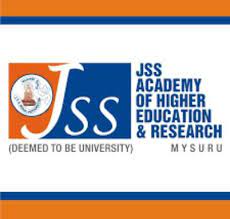
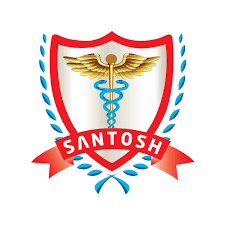
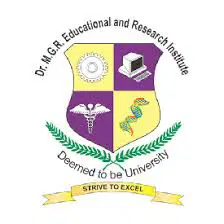
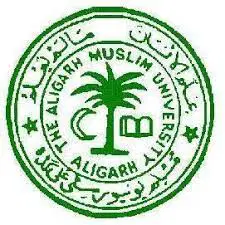
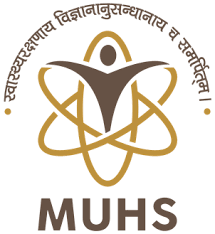


 back
back